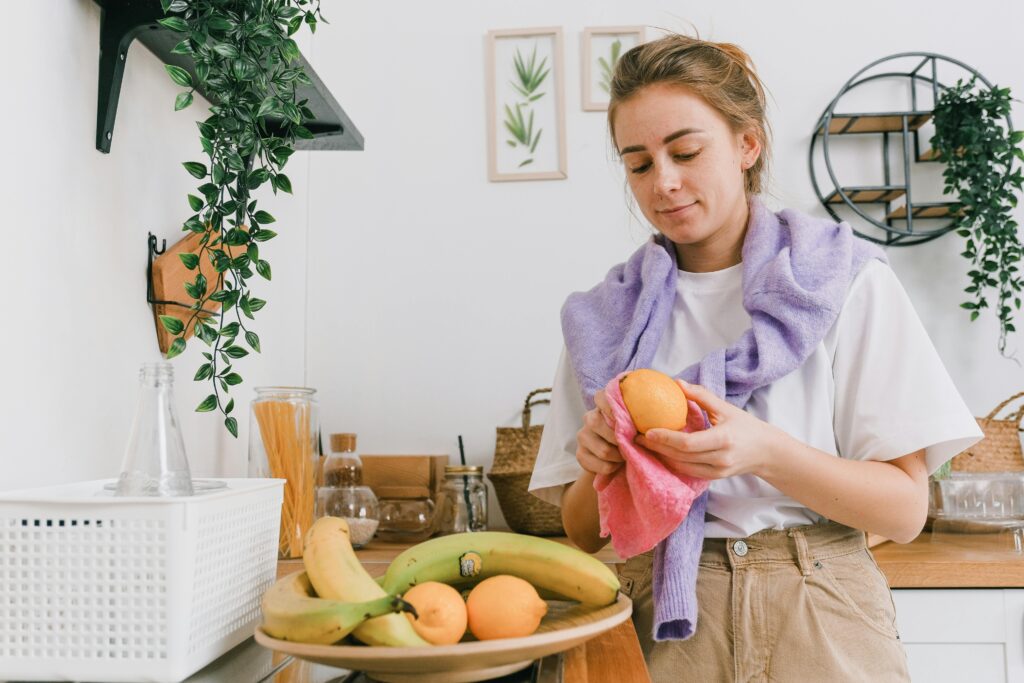Imagine that. A cheeseburger is cheaper than a punnet of berries. No wonder staying healthy can feel like an unfair game. You want to look after your body, feed it the right fuel, maybe move more and stress less. But between soaring food prices, gym memberships, and the pressure to buy “superfoods”, the cost of healthy living can seem like a luxury only the well-off can afford. And yet, there is hope. Not the kind sold in expensive wellness ads, but the kind rooted in real, daily decisions that work even when money is tight.

Via Pexels
The Convenience Trap
Let’s start with the elephant in the supermarket: ultra-processed food is cheap and everywhere. It’s piped into our lives from every angle. Quick to make, even quicker to eat. The pricing system is stacked in its favour, and it’s easy to see why. Mass production keeps costs down, and when time and energy are scarce, grabbing something convenient feels like the only option. But the long-term cost? That’s harder to spot. Low-nutrient, high-calorie foods don’t just hit our health; they weigh on our energy, mood, and even our sleep. Over time, they make us feel more tired and more dependent on the very same foods that are wearing us down. Where do you even start making changes?
Rethinking What Healthy Means
Part of the problem is that “health” has been rebranded as something glossy and aspirational. Health food shops, premium gym wear, boutique classes. None of this is essential for real wellbeing. In truth, health is more about small patterns than big purchases.
A simple bowl of oats is cheaper and more nourishing than most breakfast cereals. Walking briskly around your local park can do more good than a treadmill in a gym you can’t afford. A lentil stew costs less than frozen pizza, and fuels you for hours.
We’re not being sold the simple version of health, because it doesn’t make anyone money. But that doesn’t make it any less powerful.
Building Habits In A Broken System
It’s not your fault if healthy choices feel hard. The system is designed to make the worst options the easiest. And when you add stress, exhaustion, and the mental toll of budgeting, it’s no wonder fast food often wins.
But if you can carve out a few manageable, repeatable habits you’ll find that progress is still possible. It might be cooking double portions of something wholesome, so you’ve always got something ready. Or choosing one form of gentle movement that doesn’t feel like punishment. Maybe it’s switching out just one processed snack for something you prepare yourself. Small wins aren’t small. They are momentum.
The Price Of Health
Supplements, protein powders, and trending health products can quickly drain your wallet. Even medications and wellness treatments can feel out of reach. A mounjaro price comparison shows just how varied and inaccessible certain medical solutions can be, depending on where and how you access them.
But again, this is where it’s worth remembering that health doesn’t begin with a product. There’s power in simplicity. A balanced meal made from affordable ingredients, a walk in fresh air, enough sleep. None of these are flashy. But they work. And they’re often more sustainable than anything that comes in a branded tub.
Connection Over Perfection
One thing that gets left out of the conversation about health is connection. Loneliness, stress, and isolation have real impacts on the body. Sometimes, sharing a simple meal with someone, or having a conversation on a walk, does more for your wellbeing than any supplement or class. Don’t let the noise of the wellness industry convince you that you’re failing. You are not. You are doing what you can in a system that doesn’t make it easy.
Healthy living on a tight budget isn’t about discipline or willpower. It’s about survival, creativity, and choosing what’s actually good for you over what’s marketed as good for you. The system may be rigged, but your choices still matter.
Leave a Reply